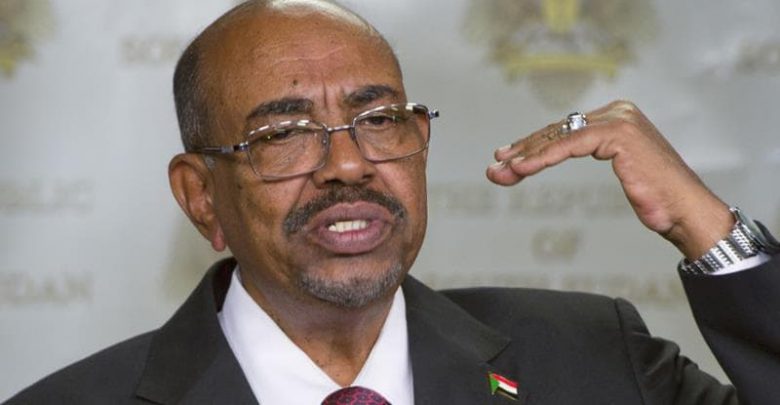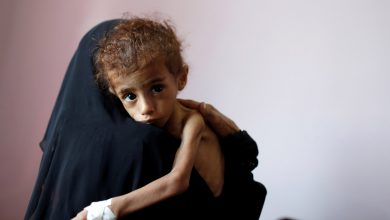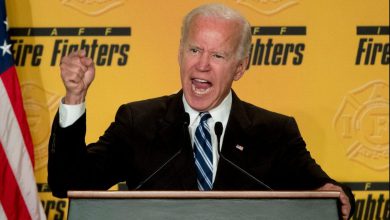Africa and Middle EastAllOngoing
The Fall of Omar al-Bashir of Sudan
On Monday, 8 April 2019, thousands of protestors took to the streets of Khartoum, Sudan calling for their repressive President Omar al-Bashir to step down.

Crowds took on the sweltering heat in Khartoum and marched across the capital, joining more who had already been camped out in the center of the city for over three days. Other than President Bashir’s resignation, citizens are in outcry over the government’s December 2018 decision to triple to cost of bread, a most basic food necessity.
Sudan
In 1953 Britain granted Sudan self-government, and the country proclaimed independence on January 1, 1956. Since then, Sudan has befallen a host of misguided, repressive, and unstable governments. Between 1983 and 2005 the country was thrust into civil war, culminating the independence of South Sudan in 2011.
Mostly desert, Sudan has rich oil deposits, but 80% is within and controlled by independent South Sudan. For the rest of Sudan, agriculture makes up a third of the total economy and employs over 80% of the population. China is her biggest trading partner. In 1983 Sudan instituted Islamic law while around 9% of the population, an estimated 40 million, is Christian. The country is home to 578 ethnic groups communicating in 145 different languages.
Education in Sudan is free but only compulsory up to age 13. Presently, more than 40% of children do not attend school due to the economic difficulties imposed by the current regime. Instead, they are required to work to help keep their families alive. According to the Global Hunger Index of 2013, Sudan had a value of 27.0, meaning that the nation had an ‘Alarming Hunger Situation’, earning Sudan the sad placement of being the 5th hungriest nation in the world.
The Corruptions Perception Index has Sudan as one of the most corrupt nations in the world, and according to the 2015 Human Development Index (HDI) Sudan ranked 167th, showing that Sudan has one of the lowest rates of human development in the world. Almost a fifth of Sudan’s population lives below the international poverty line on less than US$1.25 per day.
Protests in Sudan
Resentment towards Bashir’s militant government has been growing due to perceived mismanagement, failing public health and education, and corruption. Over the years, the ruling party has seized control of public institutions as well as private, while driving mass exodus brain drain.
At the heart of it all is the desire for an end to 76-year-old President Omar Hassan al-Bashir’s three-decade long rule. “Fuel and bread shortages may have triggered the protests across the country, but other factors are keeping them going,” Al Jazeera reporter, Hiba Morgan, said.
Various news teams on the ground reported seeing soldiers protecting protesters against other units that were acting under direct command of the presidency, and exchanges of fire between them suggested that the ruling power and its followers might be fracturing.
The group leading the protests, the Alliance for Freedom and Change, appealed to the army to initiate talks on forming a transitional government. Omar el-Digeir, a senior member of the group, said, “We call on the Sudanese armed forces to talk directly with us for facilitating the peaceful process of forming a transitional government.”. Reading an official statement, el-Digeir also called on Bashir’s armed forces “to withdraw their support for a regime that has lost its legitimacy” and “to support the people’s alternative for a transition to a civilian democratic government”.
The UN says 300,000 people have died in the conflict and 2.7 million have fled. Reports that President Bashir has called upon the infamous Janjaweed tribal militias used during the country’s civil war to deploy against the protestors is sinister, and perhaps sign that he does not intend to go quietly.
Qatar and Bahrain had voiced support for Bashir, and Sudanese Minister of Information, Bushara Juma, even accused Israel of being behind the protests. At a meeting in Nantes, France, on 10 March 2019, leader of the Sudan Liberation Movement, Minni Minnawi, said, “The main reason for the outbreak of the revolution is the deprivation experienced by the Sudanese people to satisfy needs for food, treatment and education after the regime had used all the resources to finance the (Darfur) war.”. Between 2003 and 2009, the Darfur war reportedly cost the Sudanese government in excess 30.5 billion dollars.
What now?
Political analysts and opinion articles all point to the popular uprising as the only tool available to the people to achieve a regime change in Sudan. Perhaps the greatest barrier to a solution is the current marriage of oil between Sudan and South Sudan.
Once bitter enemies, the two now depend on each other for the income they derive from oil; landlocked South Sudan has the oil, and Sudan has the pipelines and port to export it. Sudan is said to get around $11 for every barrel of South Sudan oil it lets through its pipes.
Having just emerged from its own five-year civil war, and after brokering this oily lucrative peace deal with Sudan, many fear that both Sudan and South Sudan stand to lose big if President Bashir falls.
Hope, however, is on the horizon, as officials were keen to say that if Bashir goes, the South Sudanese government will work with whoever the Sudanese people choose to lead them.



